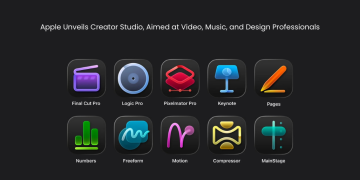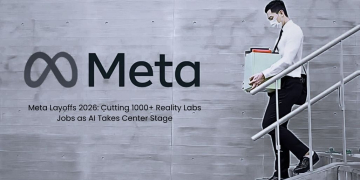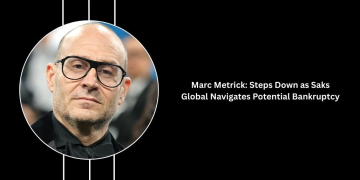A visionary trailblazer helping Qualcomm to achieve scale and speed in a world of complexity. Mr. Cisco Sanchez, CIO, Qualcomm, Inc. is a seasoned professional with a deep understanding of business dynamics.
Armed with an education from Colorado State University, Colorado Technical University and experience in a globally renowned company, Sanchez paves the path for Qualcomm’s businesses to optimize workflows and develop innovative solutions.
Cisco Sanchez embarked on his professional journey as a software development intern, progressing to technical architect, where he designed entire system(s). Subsequently, Sanchez moved to FedEx, where he led teams around the globe, overseeing the development of essential foundational services and working with teams in Europe, Latin America, and the United States. He focused on effective operations and cutting-edge designs for large-scale package handling while serving as FedEx Ground’s CIO. In his current role as CIO at Qualcomm, he places a high value on integrating into the company’s varied business sectors and making sure his team maintains positive connections with major stakeholders to foster innovation.
Maintaining the Fine Balance Between Technology Adoption and Security
As a leader in technological innovation, Qualcomm not only builds new technologies constantly but also embraces them first: whether they are products powered by Qualcomm’s own technology, or belong to others outside the company. For Sanchez’s team, security and privacy are top priorities in both circumstances. To ensure the protection of both the Company’s intellectual property and their end users, security is layered at every stage, starting with the creation of the silicon and ending with the end service capability.
Challenges and Opportunities: Along the Way
The technology Qualcomm is introducing to the market has a plethora of applications that companies can employ for internal operations. As Sanchez puts it, internal teams notice an increase in productivity as they replace their outdated PCs and smartphones with models that are powered by technology Qualcomm has developed, particularly because they incorporate on-device generative AI technology. The employees are able to supplement the skills they bring to their jobs with the intelligent capabilities of their personal devices. He’s seeing that they benefit from quick access to AI-driven responses to inquiries concerning the vast amounts of data at their disposal, which include financial, HR, marketing, and product data collected from the field. Additionally, his teams aim to provide engineers with intuitive insights into the products they are developing through the use of business-grade VR goods in ways that were previously impractical. The latest technologies have amazing potential to connect people in new ways to data, insights, and, crucially, to other people like co-workers and customers. Local AI-enabled cellular-connected PCs and VR headsets are amazing accelerators for innovation.
What Inspired Sanchez to be in the IT Industry?
Cisco Sanchez ‘s career mentor, Charlie Feld (former CIO at Frito, PepsiCo, BNSF, and Delta), highlighted the significance of not just being proficient but also personable in the business world. The allure of the IT industry for him lies in its evolving nature and the opportunity to dispute misconceptions surrounding it. Though it has experienced a transformation, the IT department was once thought of as a back-office role that was only responsible for managing laptops and services. In his capacity as CIO, Sanchez is primarily responsible for managing the technical environment and effectively utilizing it to benefit the entire company.
From the CIO’s Desk
As the CIO of Qualcomm, I’ve always had a hands-on approach, perceiving myself as “customer zero” when it comes to leveraging the technology we power. This means that I recognize how important it is to thoroughly test, understand, and analyze the technology we use—such as new generative AI tools—to pinpoint its shortcomings and maximize its potential. I’m passionate about integrating all of the technology that Qualcomm develops—whether it be our AI inference cards, earbuds, teleconferencing equipment, or 5G-enabled PCs—into our employees’ daily work environments. By integrating this technology into our offices, conference spaces, and workstations, we are able to live out our beliefs and also gives me a leg up in understanding the strengths and weaknesses of our technologies across the industries and product categories you’ll find our technologies.
Expansion, Advancement, and Beyond
As Qualcomm strides into the future, its plans are expansive and dynamic. Cisco Sanchez is excited about the work he and his team are doing at Qualcomm, specifically with the Snapdragon Compute business and the capabilities of their new Snapdragon X Elite Platform. These new technologies are going to eclipse anything that has been seen in the computing industry thus far.
Additionally, Sanchez is thrilled about his efforts with Microsoft, and their shared passion for generative AI. Their on-device generative AI solutions allow developers and cloud service providers to make generative AI more affordable, reliable, and secure by moving queries and inferences to edge devices such as Snapdragon-powered PCs and smartphones. Microsoft will keep accelerating prospects across consumer, enterprise, and industrial devices by combining its cloud AI leadership with the power of the Snapdragon X Elite platform. In order to accelerate the adoption of AI, Qualcomm adopts a proactive stance and looks for internal opportunities to utilize its power and highlight new use cases. The team recognizes AI’s co-pilot function and emphasizes how important it is to make AI user-friendly and effective.
The Pearls of Wisdom
In his closing remarks, Sanchez imparted valuable insights to aspiring tech professionals, by saying “Prioritize understanding the business first—its goals, operations, and team dynamics. Be open to criticism, actively engage, and persistently contribute. Furthermore, remain dependable and approachable by developing meaningful relationships inside and outside your organization. These relationships can be leveraged long-term.”






